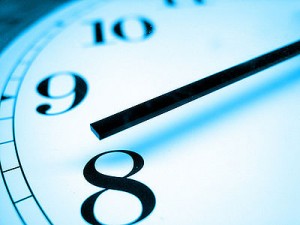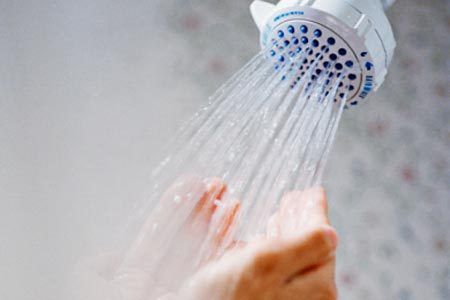Hacking Your Sleep: Extra 14 Hours to Your Week

Are you still going by your days with an 8-hour sleep schedule? We’ve all heard of the magic number 8 as being the required hours of sleep to function well throughout the day. I have been conquering my days with just five to six hours of sleep for quite some time. After all, we all just get 24 hours a day. Imagine having 18 hours rather than the normal 16 hours a day to do everything. By learning to sleep less and improve on the quality of it, you can add an extra 14-21hrs to your week.
Fewer hours of sleep is not new to entrepreneurs. However, don’t you wish you could sleep for six hours and still have energy to run through whole day without involving a huge amount of coffee? I did it and so can you. It’s actually pretty easy once you get over the first 1-2 weeks.
The 8-hour sleep myth
You don’t really need that 8 hours of sleep every doctor recommends. In fact, it can even be damaging to your health. Sleep researcher Daniel Kripke had found that “people who sleep between 6.5 hours and 7.5 hours a night, live the longest, are happier and most productive.” So where do you start?
Lets take a quick step back and go over some of the science of sleep..
The first thing to remember about sleep is its two main categories: REM (rapid eye movement) sleep and non-REM sleep. REM sleep is known as having an active brain resulting in dreaming. At this stage, your muscles are paralyzed and your eyes dart rapidly. It is advised that you should wake up after the REM stage or during the first stage of a non-REM sleep where there is slow to zero eye movements.
Non-REM sleep occurs in three progressive stages. The first stage would involve a light doze where your muscles are relaxed. Some tend to twitch during this stage. The second stage is when your body temperature drops and your brain waves slow down. Eye movement stops at this stage and the restoration process starts. By stage three, your tissues are repaired and energy is restored. This is also the time when hormones are released. Brain waves are also slower.
Some sleep hacking articles say that each complete cycle happens in 90 minutes but that is not completely true from my research. The length of each stage varies per individual. Researches show that the first REM sleep period would occur within 70-90 minutes after falling asleep. A complete sleep cycle would range between 90 to 110 minutes. This means waking yourself up after exactly 90 minutes would not guarantee optimum energy after waking up. The initial sleep cycles would start with short REM periods and long deep sleep periods. It will slowly shift to longer REM periods and shorter deep sleep periods until morning.
Sleep Hacking 101
I did not hack my sleep overnight. It took around three weeks to hack my sleep routine and make my days longer. It is best to do at least a three-week block so your body will not be shocked. You don’t just go to the gym and start lifting the heaviest weights, right? I started reducing my eight hours to seven hours in the first week. An added hour to my day alone was a big boost. The following week, I moved to sleeping for just six and a half hours. On the third week I was already shifting back six hours with ease.
I was not just adjusting my sleeping hours. I did everything to ensure that while I slept, I got the best possible sleep I could. This helps my body recover faster. Quality sleep over quantity is what we’re looking for. There are also different factors to consider when you’re sleep hacking. In this section, I will be discussing the different aspects you need to monitor and hack to get you those extra hours in a day without feeling tired.
Sleeping Rituals
Do you have a morning ritual? One key ingredient of starting your day right is by having your personal morning ritual.This boosts your mood and clears your mind towards your goals for the day. I highly recommend it. If you’re not doing it, start now! Similarly, a sleeping ritual is necessary to prepare yourself for quality night of deep, energy restoring sleep. Your sleeping ritual will not only help you sleep deeper, it will help fall asleep faster so you are not tossing and turning in bed until.
First, set a reminder for your sleeping time. If you have an alarm for waking up, why not for sleeping? I found out that having consistent sleeping and waking time can be more beneficial than the number of sleeping hours. By setting a reminder, I could start on my sleeping ritual to help my body produce melatonin and avoid any external factors that can hinder its production. Melatonin is a hormone released by our brain’s pineal gland to control our sleep and wake cycle. I set a reminder an hour before my ideal bedtime to start preparing for sleep. Once it goes off, I make my tea and turn on my relaxing music. I start dimming the lights and relax. Within an hour, my body and mind is already winded down and ready for bed.
Second, take a hot shower. Our body temperature drops around two hours before our bedtime. A hot bath boosts our body temperature and rapidly cools down once we get out of the shower. This drop in temperature will help you fall asleep more quickly. You can also drink a glass of cold water to help your temperature drop. Just don’t drink too much otherwise you’ll be spending the night going to the bathroom. Having a shower would be one of my favourites, I find it very effective.
Third, clear your mind. A lot of sleep problems are actually stress-induced. If you want to feel refreshed in the morning and fall asleep at night, there are a few things you can do to help.
- Write out everything you are thinking on a piece of paper. Tie off any loose ends that is going through your mind that may lead to you twisting and turning. Simply state your problem, write the next thing you are going to do about it and when. Get everything down on paper so you are worry free.
- End on a good note! Journaling is a great way to reflect on your day. As an entrepreneur I don’t think we give ourselves enough credit. We are too busy looking into the future and assessing our plans/goals. Spend some time going over what went good for you today and what you are grateful for. I try to pick 3 items that went well and that I am grateful for. This always helps put a smile on your face.
Fourth, do relaxation techniques during your sleeping ritual. Relaxation techniques not only releases tension but also helps you fall asleep faster. You can practice deep breathing to let your body know it is now time to relax. I found this a bit weird initially but I have grown to like it, there are a few apps that really help with this. These are:
I don’t have any particular favourite as they are all pretty effective.
Food and Supplements for Sleep
Did you know that healthy people need less sleep? Changing your diet not only helps in extending your life, it can also stretch your day! Don’t eat within two hours of going to bed. If you must eat make sure its something small. Having a large meal means your body will use up energy throughout the night digesting the food instead of using that energy to recover your body. Have you ever noticed after eating a big meal at night you’re always tired the next morning, now you know why!
- Take a tablespoon of honey before sleeping. Australian musician Stuart King suggested this and Seth Roberts further suggested you take it with an empty stomach. The amount of glucose in honey actually helps in turning of orexin, a neurotransmitter linked to alertness. I always do this but find it very hard to gauge its effectiveness.
- Replace your night cap with chamomile tea. Chamomile tea has a mild sedating effect on your restless body and mind. I find this really effective, especially when you turn down the lights in the room and just sink into your couch watching some TV. It’s all about switching off!
- Eat a banana or almond. Bananas and almonds are rich with magnesium. Magnesium is good for muscle relaxation and sleep inducing hormones. They are also low glycemic snacks which means your body will not be heavily digesting as you sleep. Lucky me that bananas are my favourite fruit!
Vitamin supplements are also a practical and effective alternative to help you sleep. Here are some I personally recommend:
- ZMA – If you don’t have bananas or almonds near you, then consider taking ZMAs (zinc monomethionine and aspartate and Magnesium aspartate) as your supplements. This supplement is not just for athletes and bodybuilders. The combination helps your body achieve deeper REM sleep. I have a supply of ZMAs by my bed for whenever I feel like I need a deep recovery sleep.
- Melatonin – Taking melatonin supplements are actually helpful when you are starting to adjust your sleeping hours. Take it an hour before you want to fall asleep for several days. The good thing about using melatonin is you can stop once your body has adjusted. If you’re an entrepreneur who goes around the world, carry a bottle to help you in jetlag.
- Theanine – If you don’t like the taste of green tea, then grab a bottle of theanine. It is the amino acid found in green tea that reduces anxiety and promotes relaxation.
The Ideal Bedroom
Skip the laptop and LCD television in your bedroom. Your bedroom should only be for two things: sleep and sex. A lot of people are becoming sleep-deprived because of their electronic gadgets. How many of you have mindlessly browsed your phone or tablet before going to sleep? How many hours did you actually waste before you felt sleepy? Did you know that the blue light from your electronic devices inhibits production of melatonin? Your bedroom should be gadget-free, unless you are using your phone as an alarm clock. Just resist the urge to check your mail and social media accounts before sleeping.
Don’t forget the lights. A pitch black bedroom is the most conducive environment for sleeping. This means covering up any LED lights and getting a blackout blind if possible. Bats can sleep 18-20hrs a day because they are in a pitch dark, cool environment.
Sleeping Positions
I have done a lot of research on this over time and tried all the positions. I always found lying on my side as having the best possible sleep. I use an app called Sleep Cycle to measure how deep of a sleep I go into. Its surprisingly accurate. When I slept on my side, I seemed to do less twisting and turning than if I was to sleep on my back. I recently heard from Dan Levendowski (a sleep scientist / researcher) that this is because when you sleep on your back, gravity naturally pushes down on your windpipe. This causes snoring and tossing/turning in the bed.
Technology and Sleep
That blue light from your gadgets may be causing you sleep deprivation but that does not mean it cannot help you hack your sleep. There are a few apps I recommend to track/improve your sleep.
- Sleep Talk Recorder ($0.99 iOS). I’m not quite sure if I snore, talk, or murmur during my sleep. Sleep talking are usually indicative of some health problems so having an app that records you while you sleep is great! It will also record any twists or turns you do in the bed. I used this for a while and gave me an idea of how much I was unsettled throughout the night. It’s also very funny to hear you or your wife/girlfriend sleep talking.
- Sleep Cycle ($0.99 iOS) This hack is brilliant for tracking how deep of a sleep you go into. It picks up on every movement you make in bed. The more you move, the lesser quality your sleep is. It also has an alarm setting that will wake you up within a certain time period when you are in your lightest sleep. I love this app!
- Carrot Alarm Clock ($2.99 iOS). If I want a little challenge, I use CARROT alarm clock. This app requires a series of dexterity mini-games to shut off. Waking up on time would reward you with level ups and new features such as songs, sounds, and mini-games. Perfect if you’re the competitive kind. Just, have a back-up alarm in the beginning while you unlock the more advance features.
- Lumie Bodyclock: This alarm does not make any annoying sound to wake you up.It simple starts brightening up like a sun rising about 25mins before your alarm time. By the time your alarm time comes around your room will be bright. Its a nice alternative from your usual screaming alarm though a bit expensive.
If you still cannot put down your gadgets two hours before sleeping, then consider purchasing blue light blocking glasses. You can still read on your tablet but allow melatonin production. For you book readers, a red or orange reading lamp by your bedside is better than the usual desk lamps. Remember that technology does not have to control your life if you know how to control it. I strictly follow the no gadgets within two hours before sleeping to ensure my body produces enough melatonin for my sleep. It takes discipline but definitely rewarding the next day.
I finally got extra 2 to 3 hours every day as soon as I learned to hack my sleep. It gives me the perfect time to prepare myself for the day ahead. I work on my goals, do some reading and try exercise. My best days are always the ones where I am up early and I follow my morning routine.
So, what will you do with your extra two to three hours per day once you’ve hacked your sleep?
The Sleep Hacking Checklist
Sleep Preparation
- Set your reminder to go off about 1 hour before your usual bedtime.
- Make some chamomile tea and switch off, watch some television or read a book.
- If you are going to take any vitamins, take them 30-60mins before bed. ZMAs recommended.
- Take a teaspoon full of honey about 30mins before.
- Take out your journal and get everything out of your head! State what has you anxious, what you are going to do next and by a certain deadline date.
- Write 3 things that went good today and 3 things that you are grateful for.
- Set Sleep Cycle app and put it under your pillow.
Here are some questions you can answer to hack your sleep. You can actually experiment on certain activities to find the ideal sleep hack for you.
1. How many hours do I want to add to my wake cycle?
2. What is my target sleeping and waking time?
3. What is my current sleeping ritual?
4. What is my ideal sleeping ritual?
5. Is my diet contributing to my sleep?
- When do I take my coffee (or soda/alcohol)?
- What is the amount of my caffeine intake?
- What do I eat for dinner?
- How many hours before sleeping do I take my meal?
6. Is my bedroom ideal for sleeping?
- No blue light coming from gadgets at night? (Y/N)
- Comfortable mattress and pillow? (Y/N)
- Temperature between 67-70 degrees Fahrenheit? (Y/N)
- All lights turned off? (Y/N)
7. What type of app do I need on my phone to help me in my sleep hack?
- Sleep Talk Recorder
- Sleep Cycle
- Caffeine Tracker
- Smart Alarm Clock (i.e. Sleep Cycle, Sleep Bot
- Meditation/Relaxation






